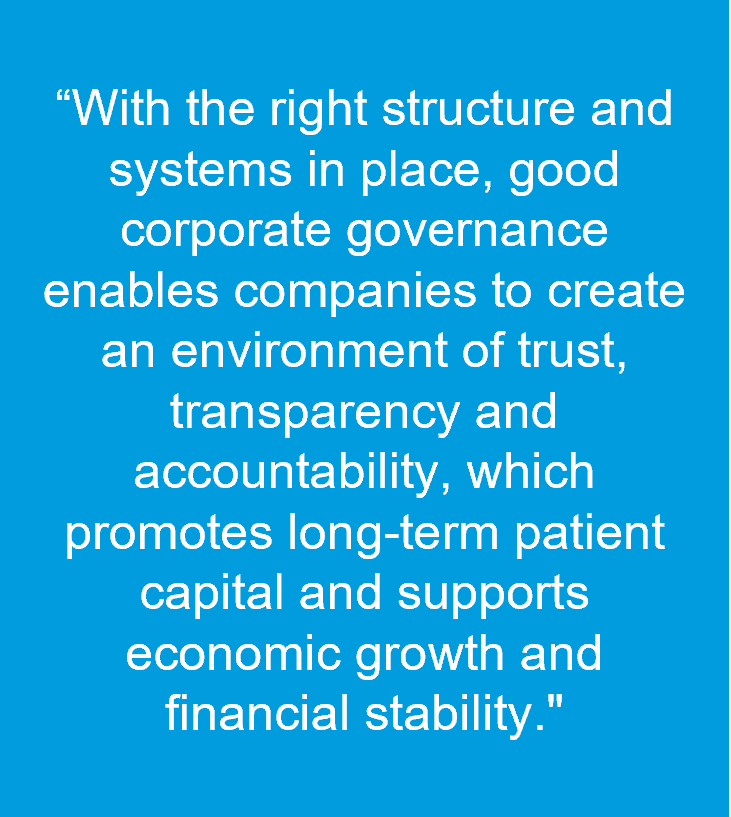Get started on your ESG and sustainability journey with RSM Portugal
At RSM Portugal, we recognise that every ESG journey is unique.
We assist businesses with their ESG policy by understanding the impact, managing risks, and enhancing stakeholder value through tailored approaches.
With a focus on details, we bring lasting value and confidence in sustainability. ![]()
Our comprehensive range of assurance and consulting services is designed to strengthen and streamline ESG Strategy Development, Integrated ESG Risk Management, and ESG Reporting, empowering businesses to take charge of their environmental impact and embrace change for a sustainable future.
How we can help with ESG
Working across a variety of sectors, we have extensive expertise in the regulatory reporting frameworks and sustainability standards. Our goal is to develop ESG strategies that empower your organisation, to not only meet its requirements, but to drive innovation in ways that positively impact the environment, communities and your business.
While ESG has always had some level of disclosure in business reporting, investors/shareholders, financiers, customers, suppliers, insurance providers and employees are increasingly demanding greater transparency and a clearer understanding of how they integrate and affect the future of the business as a whole.
Frequently asked questions about ESG
RSM holds extensive experience across the full spectrum of ESG in various industry sectors. We can bring together a team of in-house expertise in your industry to help you with:
- ESG Maturity Assessments
- Development of ESG Strategies and Comprehensive ESG Roadmaps, that breakdown silos and
 aim to enable a holistic view of ESG
aim to enable a holistic view of ESG - Facilitation Material Matters Assessments
- Facilitations of ESG Risk Assessments including Scenario Testing
- Establishing ESG Targets and Goals
- Establishing Processes for Performance Monitoring against ESG Targets and Goals
- Establishing ESG Governance Frameworks and Structures
- Preparation of Sustainability Reports and Non-Financial Risk Reporting Disclosures
- Development of Net Zero/Carbon Neutral Strategies (including baseline measurement)
- Sustainability Reporting Assurance

- Climate Change and Carbon Risk Management
- Supply Chain and Modern Slavery Assessments
- Evaluating Partnerships or Investments in line with ESG
- Verifying the Integrity of Sustainability Schemes and Energy Efficiency Projects
- Integrating ESG into Shareholder Reporting
- Gap analysis against the Global Reporting Initiative (GRI) Standards, Sustainability Accounting Standards Board (SASB) Standards, or Carbon Disclosure Project (CDP) Standards.
Take our summary ESG Assessment and send us the results. We can help!
GRC is the ESG component most focused on the development of G (Governance). A well-defined Governance strategy adjusted to your organization and the markets in which it operates is critical for the implementation of all concepts associated with ESG, such as, for example, Business Ethics and Performance Based on Principles.
- Corporate Governance Model Assessment
- Redesign of the Corporate Model

- Ethics and Codes of Conduct
- Organizational Culture
- Business Continuity Assessment
- GDPR Assessment
- Implementation of the Whistleblower Channel
- Implementation of ISO 31000
- Implementation of Risk Management
- Risk Management Maturity Assessment
- Outsourcing of Corporate Risk Management
- Outsourcing of Compliance Management
- Internal Audit Function Assessment - Flyer
- Implementation of Internal Audit
- <Internal Audit Outsourcing and Co-sourcing
- Internal Control System Assessment
Mandatory climate reporting means that the risks and opportunities to companies from climate change and the transition to a net zero economy present must now be quantified in financial reporting – something that has been attempted by only a handful of Portuguese companies to date.
This obliges organisations to devise and implement new strategies, metrics and integrate an understanding of climate risk into every aspect of business management. Climate can no longer be isolated from other risk management processes; it must be understood, integrated, quantified, managed and communicated accordingly. In addition, this disclosure will need to be assured, with the intention to see the same rigour applied to sustainability reporting as with financial reporting. All organisations will be impacted.
As more and more companies are required to report their financial climate risks, this will cascade through the supply chain and across the broader economy. If you’re a smaller company, you might have already noticed this cascade, with key major companies already seeking emissions data from their supply chain or clarity regarding human rights policies.
New rules on corporate sustainability reporting: The Corporate Sustainability Reporting Directive
On 5 January 2023, the Corporate Sustainability Reporting Directive (CSRD) entered into force.
It modernises and strengthens the rules concerning the social and environmental information that companies have to report. A broader set of large companies, as well as listed SMEs, will now be required to report on sustainability. Some non-EU companies will also have to report if they generate over EUR 150 million on the EU market.
The new rules will ensure that investors and other stakeholders have access to the information they need to assess the impact of companies on people and the environment and for investors to assess financial risks and opportunities arising from climate change and other sustainability issues. Finally, reporting costs will be reduced for companies over the medium to long term by harmonising the information to be provided.
The first companies will have to apply the new rules for the first time in the 2024 financial year, for reports published in 2025.
Companies subject to the CSRD will have to report according to European Sustainability Reporting Standards (ESRS). The standards are developed in a draft form by the EFRAG, previously known as the European Financial Reporting Advisory Group, an independent body bringing together various different stakeholders.
The first set of ESRS was published in the Official Journal on 22 December 2023 under the form of a delegated regulation. These standards apply to companies under the scope of the CSRD regardless of which sector they operate it. They are tailored to EU policies, while building on and contributing to international standardisation initiatives.
The CSRD also requires assurance on the sustainability information that companies report and will provide for the digital taxonomy of sustainability information.
Publication of the frequently asked questions on the implementation of the EU corporate sustainability reporting rules.
The development of mandatory common sustainability reporting standards is necessary to reach a situation in which sustainability information has a status comparable to that of financial information.
The reporting calendar relating to the new European CSRD Directive (Corporate Sustainability Reporting Directive), which replaces the previous NFRD Directive (Non-Financial Reporting Directive), transposed into national legislation through Decree-Law nº 89/2017, is implemented in in a phased manner, taking into account the type of recipients.
2025 marks the start of mandatory reporting under the new CSRD Directive (with data for fiscal year 2024), for all entities already covered by the previous NFRD Directive, essentially large listed companies. The activity report in 2024, for fiscal year 2023, will still be conducted under the NFRD Directive.
The detailed calendar associated with the new CSRD Directive is as follows:
Information to be reported in 2025, about fiscal year 2024: for entities that are covered by the NFRD Directive, essentially large listed companies;
Information to be reported in 2026, regarding fiscal year 2025: for other large entities not covered by the NFRD directive;
Information to be reported in 2027, regarding the fiscal year 2026: for entities listed on small and medium-sized stock exchanges (except micro-enterprises), with the possibility of derogation until 2028 (fiscal year, reporting in 2029), as long as they are duly substantiated;
Information to be reported in 2029, regarding the fiscal year 2028: for non-EU entities with a subsidiary/branch in the EU.
Climate change poses significant risks in terms of economic stability, liveability and equitable development.
However, mitigating and adaptation to climate change also allows for opportunities. Through economic restructuring, a changing legislative and policy environment and the drive of new services and products to meet low-carbon demand, several sectors could see major opportunities coming to the fore.
Those wishing to get ahead of the curve are seeing first mover benefits, and many companies are using this opportunity to diversify into new areas ahead of the market. Once a company has a clearly defined strategy, best practice requires an organisational transition plan that addresses both climate mitigation and adaptation simultaneously.
A transition plan is an aspect of a company’s overall business strategy that lays out a set of targets and actions supporting its transition toward a low-carbon economy, including actions and commitments such as reducing its GHG emissions.
ESG factors significantly influence risk across various dimensions.
When companies take into account ESG risks such as climate change, resource scarcity, or social controversies, they can more effectively identify and mitigate potential threats to their operations and reputation. Neglecting these ESG concerns can lead to regulatory penalties, legal repercussions, and erosion of brand value.
Moreover, investors and stakeholders increasingly factor in ESG performance when making decisions, meaning companies with inadequate ESG records may encounter heightened capital costs or difficulty attracting investment.
Essentially, robust ESG practices bolster risk management efforts, diminish vulnerabilities, and position companies to navigate a dynamic and socially responsible business landscape with greater resilience.




